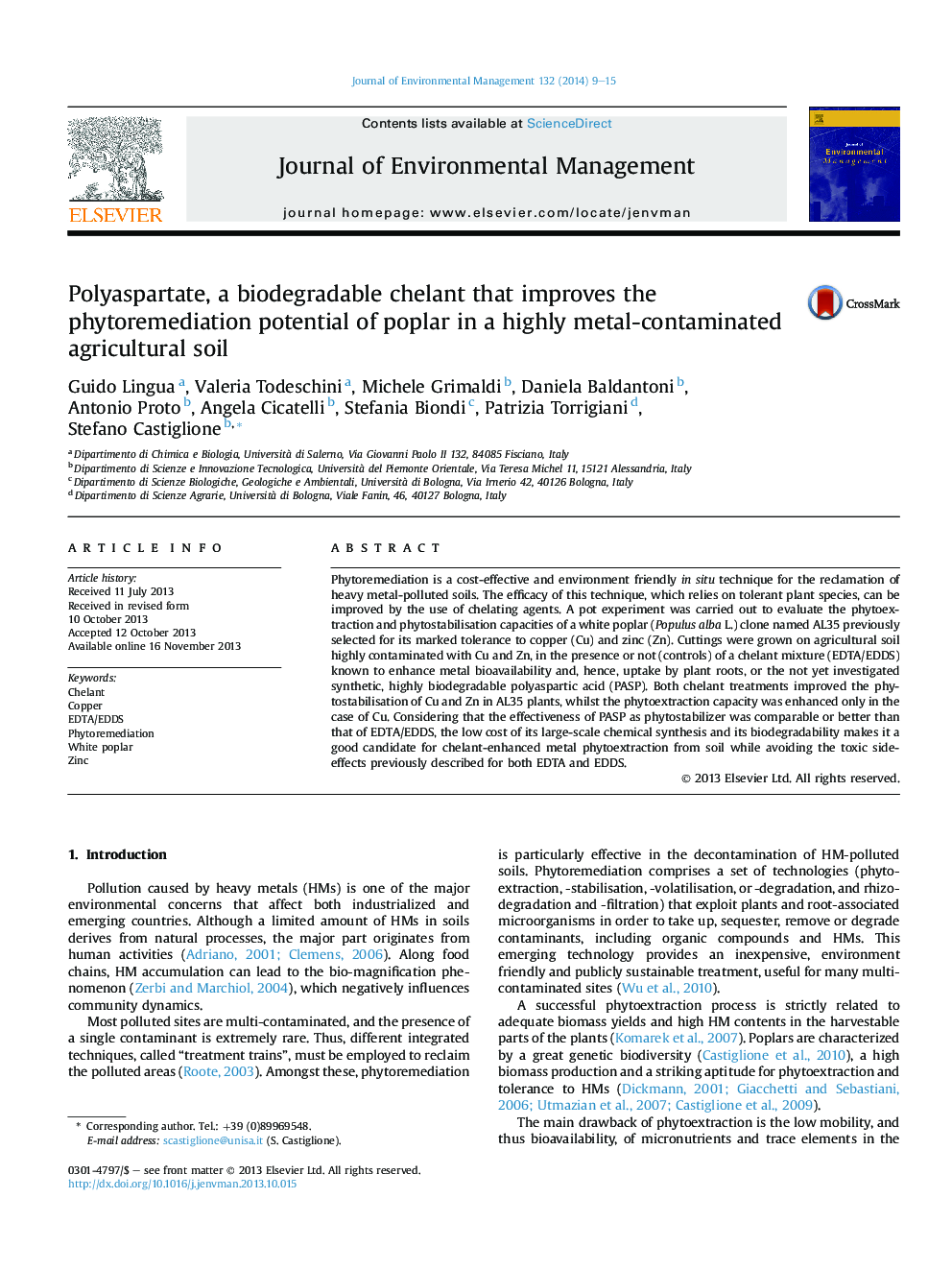| Article ID | Journal | Published Year | Pages | File Type |
|---|---|---|---|---|
| 1055775 | Journal of Environmental Management | 2014 | 7 Pages |
•A poplar metal tolerant clone is used for the phytoremediation of a polluted soil.•Polyaspartate, a biodegradable chelant, favours copper and zinc uptake by the plants.•Polyaspartate improves phyto-stabilization of copper and zinc.•Polyaspartate is cheap, already used in agriculture, and useful for phytoremediation.
Phytoremediation is a cost-effective and environment friendly in situ technique for the reclamation of heavy metal-polluted soils. The efficacy of this technique, which relies on tolerant plant species, can be improved by the use of chelating agents. A pot experiment was carried out to evaluate the phytoextraction and phytostabilisation capacities of a white poplar (Populus alba L.) clone named AL35 previously selected for its marked tolerance to copper (Cu) and zinc (Zn). Cuttings were grown on agricultural soil highly contaminated with Cu and Zn, in the presence or not (controls) of a chelant mixture (EDTA/EDDS) known to enhance metal bioavailability and, hence, uptake by plant roots, or the not yet investigated synthetic, highly biodegradable polyaspartic acid (PASP). Both chelant treatments improved the phytostabilisation of Cu and Zn in AL35 plants, whilst the phytoextraction capacity was enhanced only in the case of Cu. Considering that the effectiveness of PASP as phytostabilizer was comparable or better than that of EDTA/EDDS, the low cost of its large-scale chemical synthesis and its biodegradability makes it a good candidate for chelant-enhanced metal phytoextraction from soil while avoiding the toxic side-effects previously described for both EDTA and EDDS.
